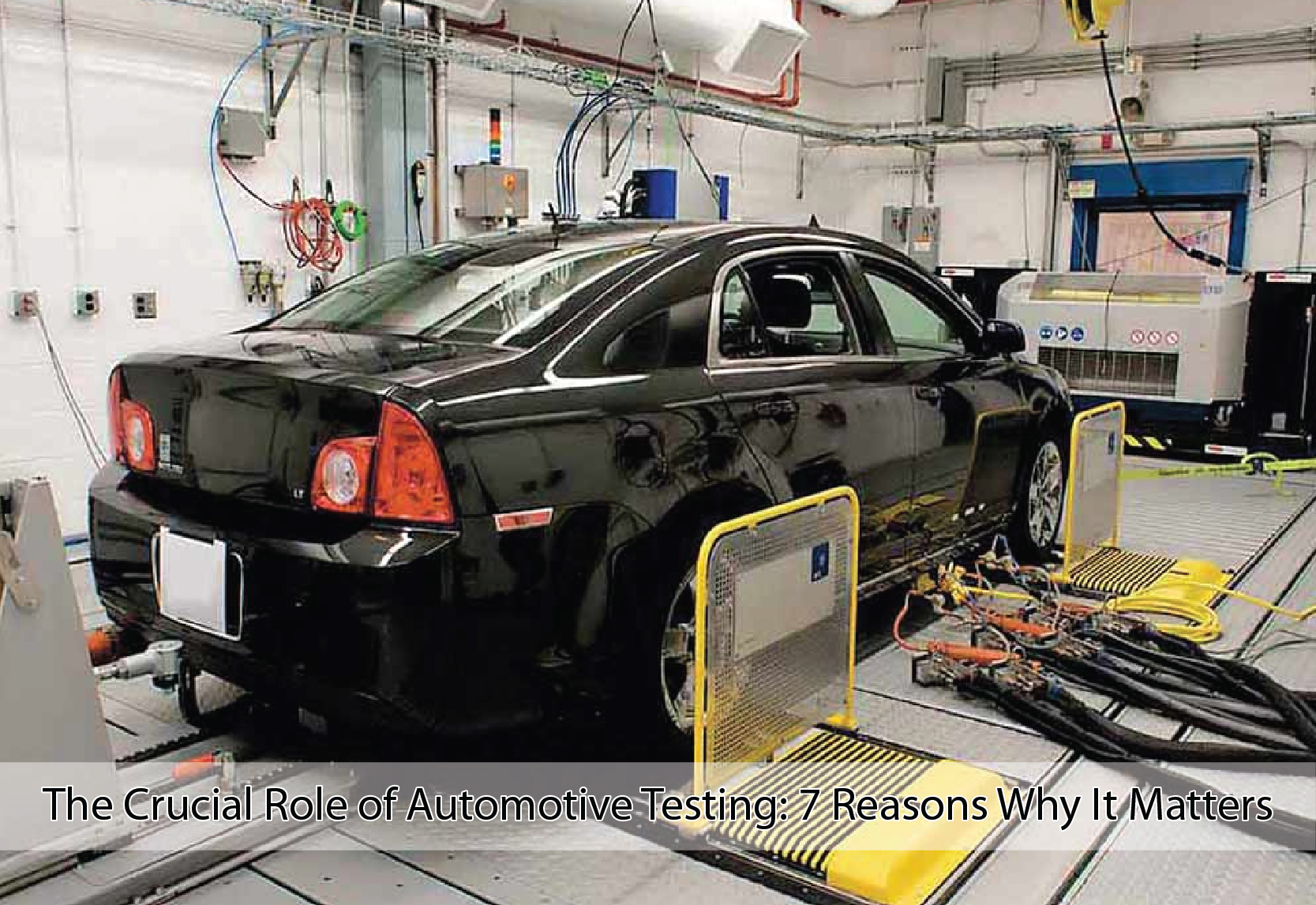The Crucial Role of Automotive Testing: 7 Reasons Why It Matters
Automotive Testing plays a pivotal role in vehicle development, safety, and performance. Testing is a critical process that ensures the reliability and functionality of automotive systems, whether it’s passenger cars, commercial vehicles, or electric vehicles. From initial design stages to final production, rigorous testing procedures are implemented to identify and address potential issues, validate performance parameters, and guarantee compliance with safety standards. In this article, we will explore the crucial role of automotive Testing by highlighting seven key reasons why it matters.
1- Ensuring Safety and Reliability
Automotive Testing is paramount to ensuring the safety and reliability of vehicles. Engineers and technicians assess various components, systems, and functionalities through comprehensive testing protocols to identify potential risks or weaknesses. Crash testing, for instance, simulates real-world collisions to evaluate a vehicle’s structural integrity and safety features. Automakers can make necessary improvements to protect occupants and enhance overall vehicle reliability by conducting these tests.
2- Meeting Regulatory and Legal Requirements
Automotive Testing is essential for meeting regulatory and legal requirements imposed by governments and industry organizations. Vehicles must comply with specific standards related to emissions, fuel efficiency, noise levels, and safety. Testing ensures that vehicles adhere to these regulations and helps manufacturers avoid legal consequences and penalties. Through meticulous Testing, automakers can demonstrate compliance and obtain the necessary certifications to market their vehicles.
3- Improving Fuel Efficiency and Performance
Testing enables automakers to fine-tune vehicle components and systems to optimize fuel efficiency and performance. By evaluating engine efficiency, aerodynamics, drivetrain efficiency, and other factors, engineers can identify areas for improvement. Through Testing, they can develop and refine technologies that enhance fuel economy, reduce emissions, and deliver better acceleration and handling. Automotive Testing is crucial in advancing vehicle performance and meets evolving consumer demands.
4- Validating Vehicle Durability and Longevity
Automotive Testing is instrumental in evaluating the durability and longevity of vehicles. Engineers can assess how well they withstand real-world challenges by subjecting vehicles to extreme weather conditions, vibration, corrosion, and other stress factors. Durability testing helps identify potential weaknesses, enabling manufacturers to make design and material improvements to enhance a vehicle’s lifespan. Ensuring long-term reliability through Testing is crucial for maintaining customer satisfaction and reducing warranty claims.
5- Enhancing Quality Control
Testing is an integral part of quality control throughout the automotive manufacturing process. From inspecting individual components to evaluating the final assembled vehicle, rigorous testing procedures identify manufacturing defects, malfunctions, and inconsistencies. Automakers can address issues promptly, minimize production errors, and deliver high-quality vehicles to customers by conducting quality control testing. Comprehensive Testing helps maintain brand reputation and customer trust.
6- Driving Innovation and Advancements
Automotive Testing is a driving force behind innovation and advancements in vehicle technology. Automakers continuously strive to improve vehicle safety, performance, and efficiency through research and development. Testing new materials, components, and technologies allows manufacturers to push boundaries and explore groundbreaking solutions. By testing emerging technologies, such as autonomous driving systems or electric vehicle components, automakers can refine and validate these innovations before they enter the market.
7- Customer Satisfaction and Peace of Mind
Automotive Testing directly contributes to customer satisfaction and peace of mind. When consumers purchase a vehicle, they expect it to be safe, reliable, and perform as advertised. Thorough Testing gives customers confidence in their choice by validating the vehicle’s quality and performance. Testing also ensures that vehicles meet customer expectations for comfort, handling, and overall driving experience. By delivering well-tested and validated vehicles, automakers enhance customer satisfaction and loyalty.
Conclusion
Automotive Testing plays a crucial and multifaceted role in the automotive industry. From ensuring safety and reliability to meeting regulatory requirements and driving innovation, Testing is an indispensable process throughout the vehicle development lifecycle. Automakers can enhance fuel efficiency, improve performance, and deliver high-quality vehicles that meet and exceed customer expectations through comprehensive testing procedures. By investing in rigorous Testing, the automotive industry continues to advance, innovate, and prioritize customer safety and satisfaction.







